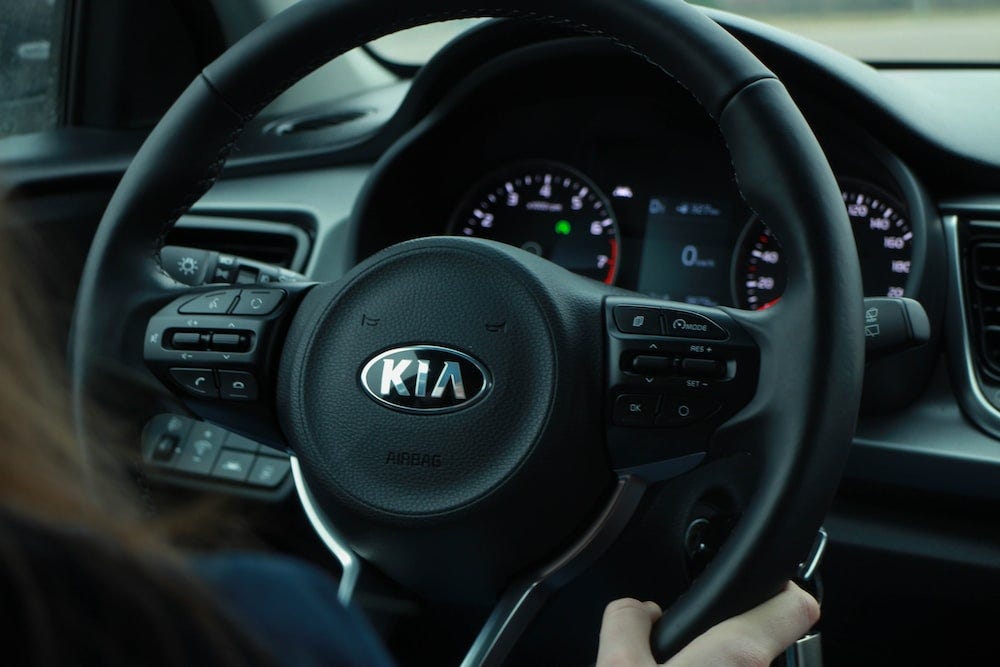Judge Rejects Hyundai/Kia Class Action Settlement, Citing Inadequate Remedies
Since 2020, the U.S. has seen a startling rise in car thefts involving Hyundai and Kia vehicles.
Every society gets the kind of criminal it deserves. What is equally true is that every community gets the kind of law enforcement it insists on.
A federal judge has declined to approve a proposed settlement in a class-action lawsuit against Hyundai and Kia. The lawsuit was prompted by a significant increase in thefts of Hyundai and Kia vehicles, and the judge stated that the proposed settlement fails to provide "fair and adequate" relief to vehicle owners.

In what may be considered a laughable settlement in the auto industry, Korean automakers Hyundai Motor and Kia Corp have agreed to a diminutive $200 million settlement of a consumer class-action lawsuit. The lawsuit pertains to the escalating thefts of Hyundai and Kia vehicles across the United States, raising grave concerns about the security systems of these cars.
Since 2020, the U.S. has seen a startling rise in car thefts involving Hyundai and Kia vehicles, drawing widespread attention to the efficacy of the companies' anti-theft measures. This surge in car thefts was partly fueled by a series of TikTok videos demonstrating how to bypass the ignition systems in Hyundai and Kia cars that didn't feature a push-button ignition or anti-theft immobilizer.

The proposed settlement, announced in May, could be valued at $200 million and would cover approximately 9 million Hyundai and Kia vehicles in the U.S. from the 2011-2022 model years. These vehicles lack push-button ignitions and immobilizing anti-theft devices, making them susceptible to theft with just a screwdriver and a USB cord.
The settlement would offer vehicle owners cash payments for theft-related damage and a voluntary recall to update theft-protection software.
The settlement package offered by Hyundai and Kia includes multiple components designed to provide relief and recompense to the affected vehicle owners.
Approximately $145 million of the settlement fund will go towards out-of-pocket losses for consumers who have had their cars stolen. In this context, out-of-pocket losses include insurance deductibles, increased insurance premiums, and other theft-related losses that the car owners might have had to bear.
Payments for the total loss of vehicles, damage to vehicles and personal property, and insurance-related expenses are also included in the settlement. It covers owners of 2011 through 2022 model year Hyundai or Kia vehicles with a traditional "insert-and-turn" steel key ignition system. Other related expenses, such as car rental, taxi, or other transportation costs not covered by insurance, are also included.
The settlement will also reimburse owners for towing costs, stolen vehicles that suffered crashes or were never recovered, and payments for tickets or other penalties or fines incurred from a stolen vehicle.
U.S. District Judge James Selna raised concerns about the process for calculating payments and questioned the adequacy of the software update in preventing future thefts. Despite the automakers announcing the update early in 2023, reports indicated that thieves were still stealing Kia and Hyundai vehicles at alarming rates.
Data from eight U.S. cities revealed substantial year-over-year increases in theft reports through April. In an Aug. 11 letter, the attorneys general of six states and the District of Columbia urged Judge Selna to require the automakers to install engine immobilizers in all theft-prone Hyundai and Kia vehicles, possibly in combination with a vehicle buyback program, instead of the proposed update and cash payments.
The rejection of the proposed settlement highlights the ongoing challenges in addressing vehicle thefts and the need for more robust solutions. The case underscores the importance of adequate security measures and the responsibility of automakers to ensure the safety and protection of their customers.



